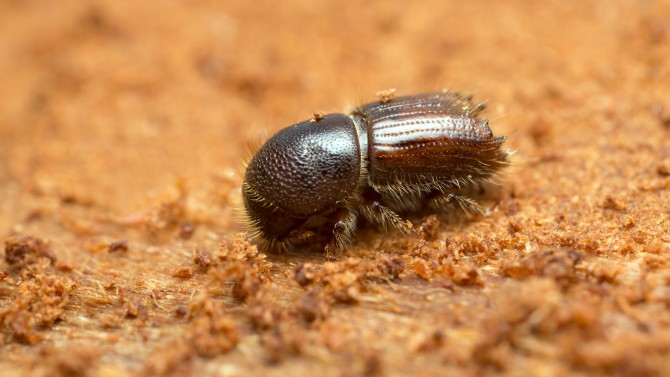Audio storytelling workshop to train journalists
By Krishna Ramanujan
On July 11-12, 10 journalists will descend on The Białowieża Forest on the Poland-Belarus border, a world heritage site and one of the last stands of old-growth forest left in Europe. The forest is being threatened by the bark beetle, a voracious pest that is increasingly decimating forests in North America, Europe and Siberia.
The journalists are taking part in an audio storytelling workshop, to report on the role climate change is playing in the increasing infestations of these forest pests. The workshop will explore recent advances in audio reporting techniques and technologies, along with advances in the use of sound by scientists in their research of climate change and animal behavior.
“Sound captures a sense of place and of firsthand experience in a way that reading a description doesn’t necessarily,” said Laurel Symes, assistant director at the Bioacoustics Research Program (BRP) at the Cornell Lab of Ornithology. “It’s a way of taking somebody to a place and giving them as much of that experience as you can.”
Symes is one of three workshop trainers; the others are Bill McQuay, an award winning audio producer at Eco Location Sound and a former sound engineer at the Lab of Ornithology; and Chris Joyce, a science correspondent at NPR.
“Scientists, working in the field of bioacoustics, have developed tools for sound recording and analysis that can be used by journalists to connect an audience, at the feeling level, to other animals and biological processes,” said McQuay, who leads the workshop.
Participants hail from Riffreporter (Germany), Outride.rs (Poland), The Washington Post/World Post (United States), Thomson Reuters Foundation (United Kingdom), Czech Radio (Czech Republic) and de Volkskrant, a Dutch daily newspaper.
The workshop will kick off the Sound Reporting Co-lab, a media support initiative for sound and science-based storytelling. The Sound Reporting Co-lab is a program of the Lookout Station, a science media initiative of the European Forest Institute (EFI), and is partly supported by the Cornell Lab of Ornithology in the form of expertise, equipment and access to recordings from the lab’s Macaulay Library and BRP.
To that end, Symes’ role as a trainer will include teaching journalists how to talk to scientists. Researchers and experts from EFI, the Polish Forest Research Institute and the University of Warsaw will help explain the relationships between bark beetles, climate change and ecological, economic and social consequences. Symes will act as a mediator between the scientists and journalists at the workshop.
Symes’ journey into natural sound recording began in 2009 when she attended the Sound Recording Workshop through the Macaulay Library, the world’s premier scientific archive of natural history audio, video and photographs. That workshop was co-led by McQuay, who was the library’s sound engineer at the time.
Symes is well-versed in recording natural sounds; her research explores the relationships between animal sounds and the ecology and evolution of organisms. Symes and McQuay will train the journalists on the equipment and techniques for collecting audio; Joyce will focus on crafting and writing audio stories.
The Cornell Lab of Ornithology will also provide sound recording tools and analysis software, and access to scientists and technologists at BRP for interviews and information via Google Hangouts. In addition, the Macaulay Library will make available its collection of natural sounds for use in stories, and staff will assist in identifying species that journalists may record.
Bark beetles are common pests of conifer trees (such as pines, cedars and junipers) across North America, Europe and Siberia. Rising temperatures are preventing winter larvae die-offs, and new beetles are hatching earlier in the year and reproducing more quickly while droughts have weakened the trees’ defenses. Land use and global spread of species have contributed to the beetle’s success.
Along with EFI and the Polish Forest Research Institute, sponsors include the European Forest Genetic Resources Programme, European Forest Risk Facility, and Hindenburg Systems.
Media Contact
Get Cornell news delivered right to your inbox.
Subscribe

